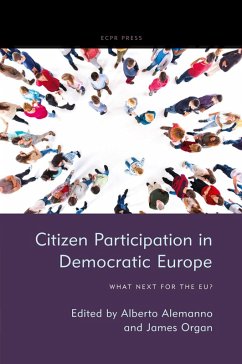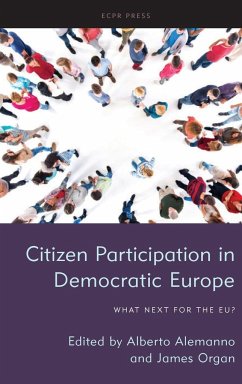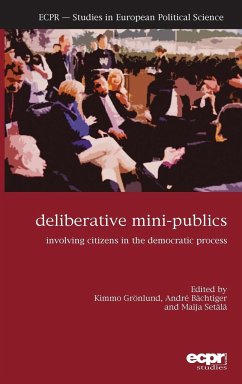As the European Union undergoes a major, self-proclaimed democratic exercise the Conference on the Future of Europe and approaches Treaty change, this volume offers a new model of citizen participation to address Europe's long-standing democracy challenge, and respond to the aftermath of the COVID-19 pandemic. Proposed are a set of democratic innovations, ranging from citizens assemblies to regulatory gaming to citizens initiatives and lobbying, which are complementary, not antagonistic, to existing representative democracy across the European continent. These innovations are emerging bottom-up across the continent and getting traction at local, national and EU level in a new era powered by technology. This book brings together academics as well as practitioners to give a forward-looking, holistic view of the realities of EU citizen participation across the spectrum of participatory opportunities. They all converge in arguing that, after many years of proven experimentation, the EU must institutionalize supranational, participative and deliberative, democratic channels to complement representative democracy and each other, and ultimately improve the effectiveness of EU citizen participation. While this institutional approach will not magically treat the EU democratic malaise, it should make the system more intelligible, accessible, and ultimately responsive to citizen demand without necessarily undertaking Treaty reform. The attempt to harness citizen participation to help address the current EU crisis needs the type of multi-faceted approach presented in this book. One that recognises the potential of existing and new democratic mechanisms, and also, importantly, the links between different instruments of citizen participation to improve the overall quality of EU's democratic system
Hinweis: Dieser Artikel kann nur an eine deutsche Lieferadresse ausgeliefert werden.
Hinweis: Dieser Artikel kann nur an eine deutsche Lieferadresse ausgeliefert werden.








